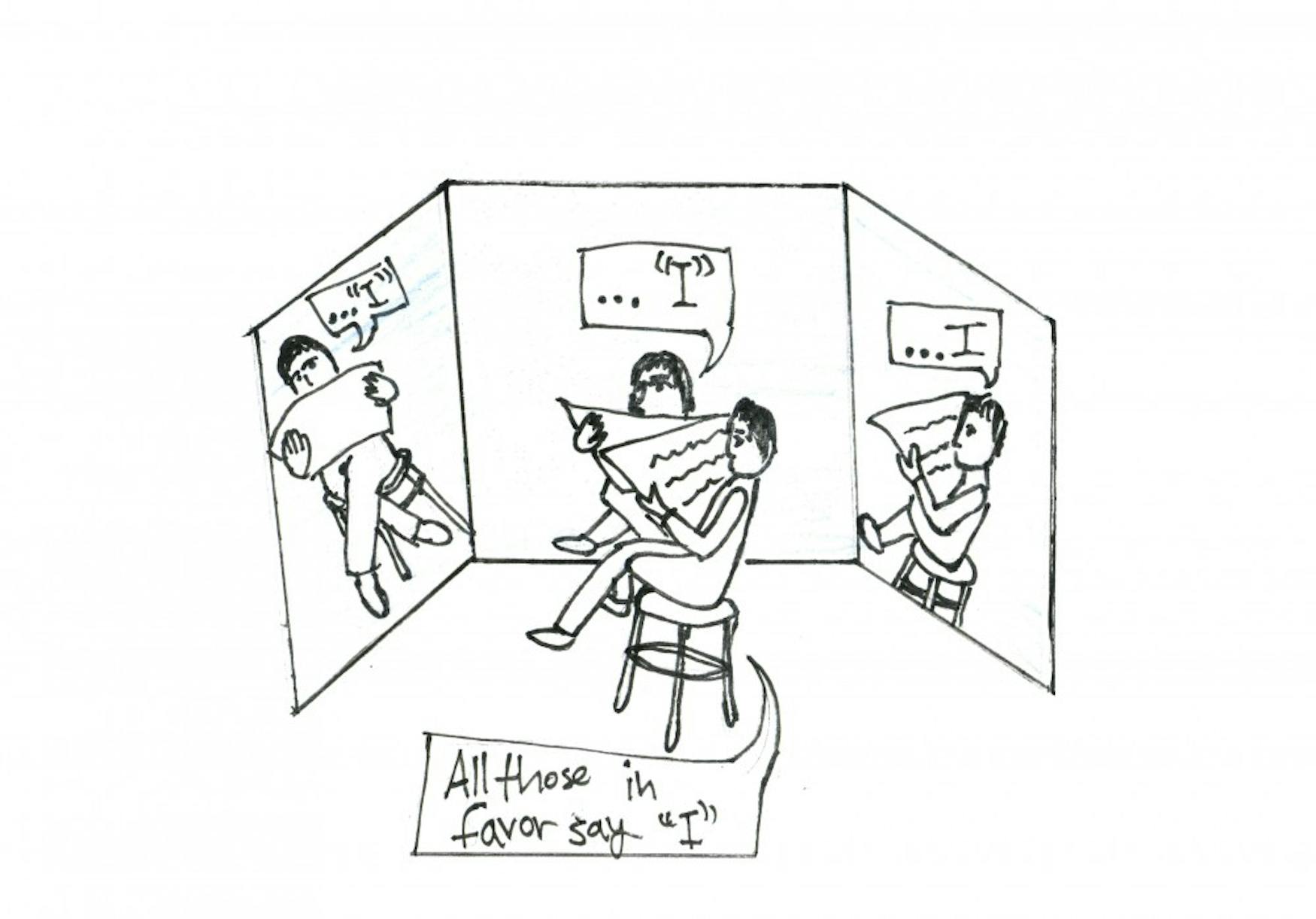Editorial: Union should re-evaluate duties and values
Last week, Executive Senator Kent Dinlenc ’19 introduced a proposal to de-charter The Brandeis Hoot, a campus newspaper established in 2005. The Senate waited a week between the proposal introducing to the Senate members and voting on it. This break allowed time for students to rally in support for The Brandeis Hoot, which circulated a petition asking students and clubs to “stand in solidarity with us and support that The Hoot should not be de-chartered as a club on campus.”
This board is deeply concerned about a flawed system that the Senate uses when making major campus decisions such as de-chartering a club. The current system would have allowed for the proposal to have been put to a vote the same night it was introduced instead of waiting a week, according to Dinlenc’s statement rescinding the proposal on Thursday. This flaw may allow an unfair vote in the future to take place immediately following a proposal.
One suggestion is presenting proposals such as this one to the student body before formally presenting them to the Senate in order to gather a general consensus as to whether they would be favored by the students as a whole. In this case, Dinlenc attempted to do this by surveying students about the newspapers, but it unclear what the survey’s goals were. It was first sent out only to midyear students and was only sent out to the rest of the student body after the proposal was introduced.
This survey cannot be seen as a representation of what the majority of the school believes due to undercoverage, a type of surveying bias where some members of the population are inadequately represented, and due to the survey’s small sample size. From the response to the proposal, it is clear the survey did not accurately gauge student opinions on the subject. According to last week’s Senate Log of the April 7 meeting, Dinlenc “referenced a survey he had sent to the Brandeis community inquiring about their interest in reading the newspapers on campus. Dinlenc said only 51 ‘valid responses’ were submitted, however, and stated that he will seek additional responses before revealing the results of the survey to the Senate.” Such a proposal should have been based on the opinions of a larger sample size of the Brandeis community, and should not have been presented to the Senate until it was an accurate representation of the student body’s wishes.
The purpose of the Student Union is to represent the student body. According to its Constitution, it aims to “provide for meaningful address of student concerns through the principle of democratic representation,” among other objectives. Unfortunately, this board feels that the processes by which recent proposals — including the club consultant bylaw and the Hoot decharting proposal — were introduced, debated upon and communicated to the student body do not align with the goals that the Union claims to strive toward. One of the most important roles of the representatives is to communicate with their constituents and do all they can to gather opinions and thoughts from the student body. However, this often does not seem to be a high priority for Union members.
In the week leading up to the club consultant proposal’s passage on March 31, students from media organizations who would be greatly impacted by the bylaw — such as members of the Justice — struggled to have their voices heard. As per our April 9 editorial, senators repeatedly did not attend their posted office hours, and when media representatives were finally given a chance to speak at the March 31 Senate meeting, their speaking times were limited to three minutes each. During the April 7 Senate meeting, in which Dinlenc introduced the proposal to de-charter The Hoot, Hoot News Editor Celia Young ’21 began her speech in support of the newspaper by saying that they had not been “formally notified” of the proposal until 2 p.m. that day, giving them only a few hours to prepare to defend themselves that evening. If Dinlenc had not called for a week between the proposal and the vote, the proposal could have been voted on that evening as well. Later in this meeting, several senators reportedly began showing signs of disinterest in the discussions once the clock hit 9 p.m., some shutting their laptops, even though everyone was not officially dismissed until closer to 9:30 p.m.
These instances are just some examples of the Union putting inadequate effort into hearing from its constituents. Representatives have been elected to their positions in order to serve the undergraduate students of Brandeis by representing their wants, needs and ideas. To accomplish this, they need to inform constituents about widely impactful proposals and give them time to express their opinions, advertise and attend office hours to hear from those who wish to meet with them and be fully engaged during meetings in which ideas and issues are being discussed.
If this last expectation is not being met, perhaps meeting times need to be reevaluated in order to ensure that Union members can exhibit full interest during their entirety.
The recent and upcoming elections offer the Union a chance to pause and reevaluate their processes and values to ensure that students are having their voices heard. The Student Union is meant to act as a liaison between the student body and the administration, but lately it seems as if we are in need of a liaison between the student body and the Student Union.




Please note All comments are eligible for publication in The Justice.